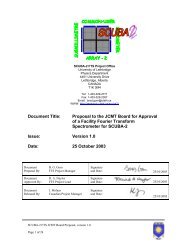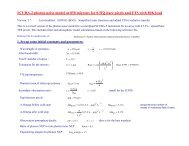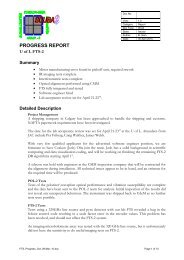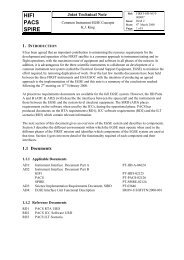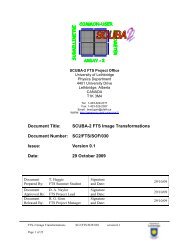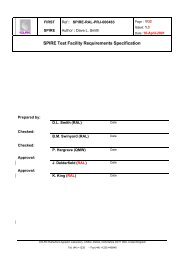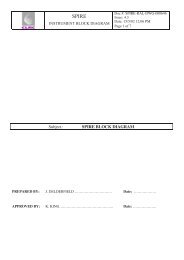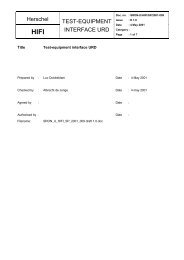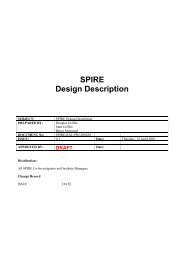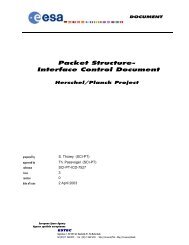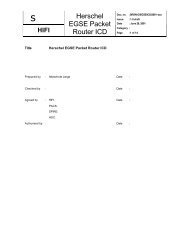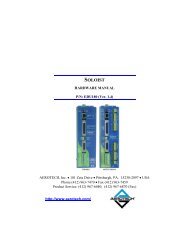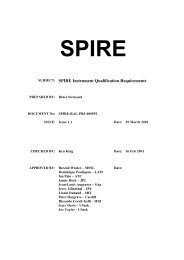gambling in alberta - Research Services - University of Lethbridge
gambling in alberta - Research Services - University of Lethbridge
gambling in alberta - Research Services - University of Lethbridge
Create successful ePaper yourself
Turn your PDF publications into a flip-book with our unique Google optimized e-Paper software.
Restrict<strong>in</strong>g <strong>Research</strong> Access is a Self-Government Right<br />
Expand<strong>in</strong>g the previous section’s discussion, an email from Stoney Nakoda First Nation<br />
representatives <strong>in</strong>dicated that our research was <strong>of</strong> limited <strong>in</strong>terest to the community. Implicit<br />
to these remarks and the above discussion is the First Nation belief <strong>in</strong> the existence <strong>of</strong> a selfgovernment<br />
right to restrict researcher access to First Nations communities. The relationship<br />
between academic researcher and Aborig<strong>in</strong>al community is well documented and very<br />
dynamic. Many <strong>of</strong> the same issues that have appeared <strong>in</strong> the press underlie Alberta First<br />
Nation gam<strong>in</strong>g communities reasons for refus<strong>in</strong>g to participate:<br />
The Saskatchewan Indian Gam<strong>in</strong>g Authority (SIGA) and the Mississaugas <strong>of</strong> Scugog Island First<br />
Nation, which operates the Blue Heron Charity Cas<strong>in</strong>o (<strong>in</strong> Ontario), for <strong>in</strong>stance, have cited their<br />
self-govern<strong>in</strong>g authority to (unsuccessfully) implement localized labour codes <strong>in</strong> contravention<br />
<strong>of</strong> prov<strong>in</strong>cial legislation (Belanger 2011b, 2011c). Deny<strong>in</strong>g researcher access to First Nations<br />
communities reflects the American Indian experience, whereby sovereign tribes are<br />
empowered to restrict non-Indian access to reservations. Similarly, several First Nations <strong>in</strong><br />
Canada have banned non-Native researcher access. Still others attempt to establish work<strong>in</strong>g<br />
relations, acknowledg<strong>in</strong>g that important and otherwise unaffordable local research can be<br />
accomplished as additions to larger academic research agendas. In do<strong>in</strong>g so communities<br />
demand control over budget<strong>in</strong>g; others over research design. In Nunavut, researchers are<br />
required to first obta<strong>in</strong> a Scientific <strong>Research</strong> Licence prior to be<strong>in</strong>g granted access to work <strong>in</strong> the<br />
territory (see Nickels, Shirley & Laidler, 2006).<br />
Deny<strong>in</strong>g researcher access took on two dimensions <strong>in</strong> this project. First, as a self-govern<strong>in</strong>g<br />
entity empowered to establish its own by-laws concern<strong>in</strong>g the access <strong>of</strong> non-band members the<br />
First Nation has the right to ban researcher access to the community. Second, First Nations and<br />
their American operators regularly make the claim that the data be<strong>in</strong>g sought is proprietary.<br />
In the first <strong>in</strong>stance, Aborig<strong>in</strong>al self-government has evolved from a concept <strong>of</strong> local municipal<br />
government models rooted <strong>in</strong> the Indian Act to a constitutionally protected <strong>in</strong>herent right,<br />
f<strong>in</strong>d<strong>in</strong>g its most recent expression <strong>in</strong> the idea <strong>of</strong> ‘Aborig<strong>in</strong>al national government’ as a dist<strong>in</strong>ct<br />
order <strong>of</strong> government with<strong>in</strong> the Canadian federation. Self-government’s scope, authority and<br />
jurisdiction have expanded beyond municipalities, to <strong>in</strong>clude federal, prov<strong>in</strong>cial, and municipal<br />
jurisdictions and some unique Aborig<strong>in</strong>al authorities (Belanger & Newhouse, 2008).<br />
As the community government, band council operations are guided by the Indian Act, which<br />
provides a legal framework for govern<strong>in</strong>g reserve lands, dictat<strong>in</strong>g election procedures, and<br />
sett<strong>in</strong>g the terms <strong>of</strong> <strong>of</strong>fice for chiefs and councillors. The Act also empowers the chief and<br />
council under S. 81 to establish local by-laws over reserve lands for a host <strong>of</strong> issues. First<br />
Nations communities <strong>in</strong> certa<strong>in</strong> cases have openly considered us<strong>in</strong>g various Indian Act sections<br />
to restrict researcher access to reserve communities <strong>in</strong>clud<strong>in</strong>g s. 81(p), which provides for “the<br />
removal and punishment <strong>of</strong> persons trespass<strong>in</strong>g on the reserve” (non-band members without<br />
permission to be <strong>in</strong> the community); or those “frequent<strong>in</strong>g the reserve for prohibited purposes”<br />
254



